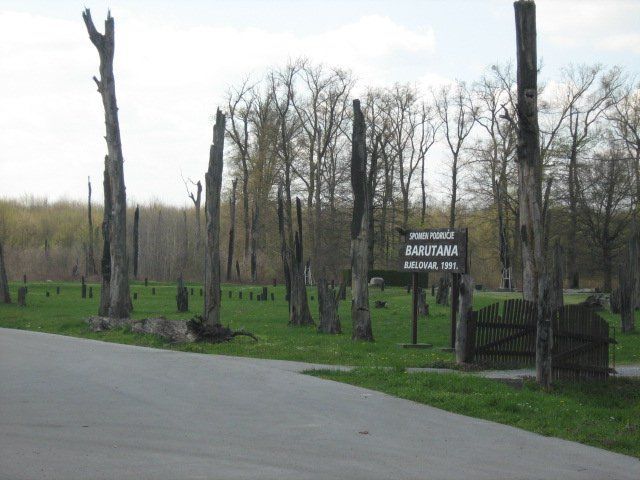The former Croatian foreign minister believes that, with this move, Serbia admitted it had participated in the aggression against Croatia in the 1990s.
A monument to an officer of the former Yugoslav People’s Army, Major Milan Tepić, who blew up an arms depot in Bedenik near Bjelovar in Croatia in 1991, when eleven Croatian soldiers died, was unveiled in Belgrade, reports Večernji List on September 30, 2017.
The monument to Tepić was inaugurated on the occasion of the 26th anniversary of the events of 29 September 1991, when he intentionally blew up a weapons depot with 170 tons of explosives. The wreaths were laid on Friday by Serbian Defence Minister Aleksandar Vulin, Minister of Labour and Employment Zoran Đorđević, representatives of Serbian army and citizens.
Tepić, the commander of the Barutana weapons depot in the village of Bedenik, planned to blow up all four warehouses, but four Croatian soldiers prevented him and thus saved Bjelovar and the surrounding area from destruction. In his suicide move, 11 Croatian soldiers were killed.

“This monument, which we have unveiled today, is not just a sign of respect towards Milan Tepić and his family, but towards the entire Serb people. Thanks to this monument, Serbia is now a more just state, better than it was yesterday,” said Đordjević during the ceremony.
In 1991, the Yugoslav Presidency proclaimed Tepić “a hero of the people” for “his outstanding feat in the fight against the enemy during the attack on the barracks in Bjelovar,” making him the last individual to have been awarded this award in Yugoslavia.
Miro Kovač, MP and former Croatian Foreign Minister, commented on the monument. “The unveiling of the monument in Belgrade, in the presence of two Serbian government ministers, to Milan Tepić, who 26 years ago in Bjelovar destroyed a weapons depot and killed eleven Croatian soldiers and himself, is an unambiguous message that Serbia identifies with the military aggression on Croatia in the early 1990s. After today’s indirect, but very symbolic admittance of the aggression of the Yugoslav People’s Army and Serbia against Croatia, perhaps it will be easier to build normal neighbourly relations. You cannot escape from the truth. And the truth about aggression is written in the proposal of the law on Croatian war veterans. Dealing with the truth is important in intergovernmental relations,” said Kovač, alluding to the recent proposal of the war veteran’s law which has drawn protests from Serbian officials due to its definition of the Homeland War.
Translated from Večernji List.







